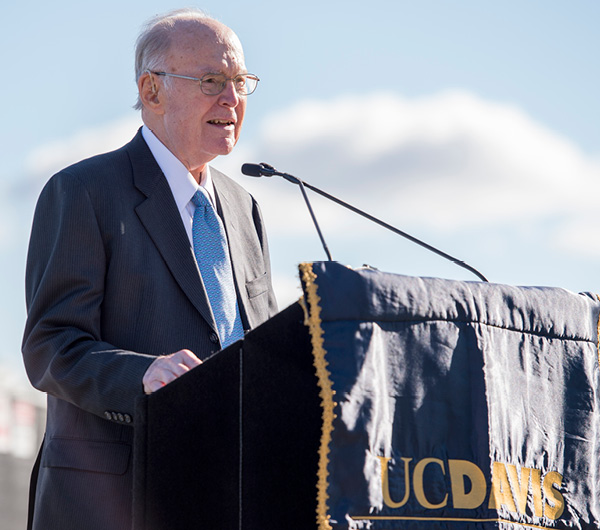
Investing in innovation
Doug Busch spent more than 20 years working at Intel Corporation, the world’s largest manufacturer of computer chips and a leading manufacturer of computer, networking and communications products. He served as chief information officer for several years, overseeing a budget of more than $1 billion and as chief technology officer for Intel’s health care business. He also serves on the board of Blue Shield of California. In all of these roles, he has been a passionate advocate for applying technology and systematic improvement to get the most out of every investment.
Today, he invests personally in the mission of the Betty Irene Moore School of Nursing at UC Davis as a founding donor and as a member of the school’s National Advisory Council. He took on this role enthusiastically after understanding Founding Dean Heather M. Young’s vision and the culture of change she is creating. Supporting the goals of the Gordon and Betty Moore Foundation is also very important to Busch.
“I started supporting the School of Nursing because I believe in the mission and approach of the school’s leadership, and because I feel a strong sense of gratitude to Gordon Moore for the opportunities he and Intel provided me for more than two decades,” explains Busch, who along with his wife, Julie, established the Busch Family Endowed Fund. “The School of Nursing is focused on preparing graduates to be change agents in health care. The graduate programs enable talented professionals to build the skills needed to solve the problems of our health care system.”
Busch, along with a few Intel alumni, visited with Gordon Moore, Intel founder, in November at the groundbreaking for Betty Irene Moore Hall, named after Moore’s wife. Busch agrees with Moore’s assertion that the School of Nursing exceeds expectations.
“The more I learn about the diverse faculty driving the programs and the students graduating from the school, the more I am convinced that supporting these mid-career professionals will help ensure that needed change can originate from the middle of health care organizations,” Busch says.

